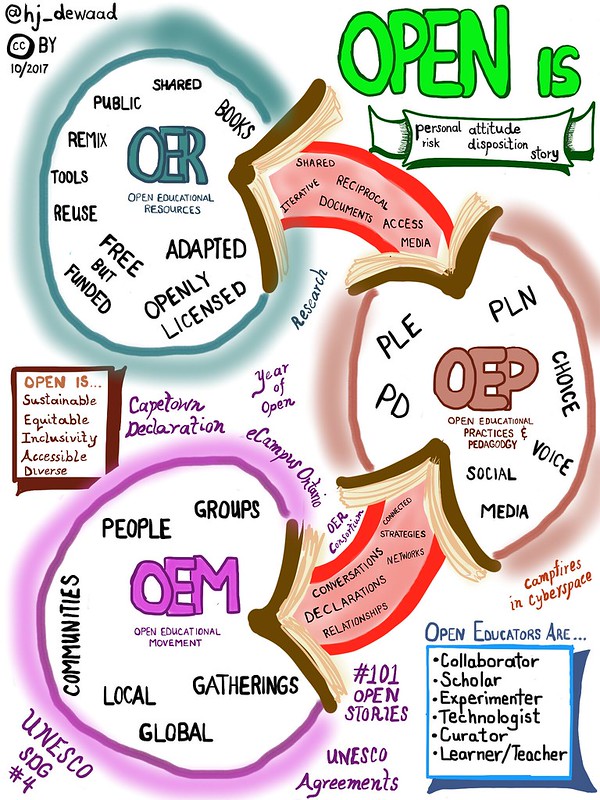At my institution, we have six institutional learning outcomes for general education:
- Diversity, Equity, Inclusion, and Racial and Social Justice
- Critical Thinking
- Communication
- Scientific Reasoning
- Quantitative Reasoning
- Information Literacy
each with 2-4 specifications, so it’s really 20 outcomes under 6 headings.
I don’t think OER directly relates to any of them. OER could be used in the teaching/learning process, like any other type of resource, but it is open practices that offer real benefits. For example, if students are to
- describe the historical and contemporary societal factors that shape the development of individual and group identity involving race, class, and gender;
- analyze the role that complex networks of social structures and systems play in the creation and perpetuation of the dynamics of power, privilege, oppression, and opportunity;
they could do this by critiquing course materials, looking for ways that they play a role in perpetuating these issues, and coming up with ways to make them better. If a course used open resources, they could be modified. If not, the critique could become an additional course resource.
If one took an open pedagogy/“students as producers” approach to a course, critical thinking could be built into the everyday practice of the course. Instead of making it a function of a research paper that gets handed in, it could be a function of what students bring to class and do in class. They would learn critical thinking by doing it. Students could put communication skills into practice by creating open materials to benefit a course, and themselves in the process. I’m sure these things are done to some extent anyway, but may not be recognized as open pedagogical practices.
There have been some open pedagogy projects that relate to scientific reasoning. I heard of a botany course where students built an online field guide to local flora as an open resource, practicing scientific reasoning while creating something for people to use. There was a geology class, at University of Saskatchewan I think, where students curated a collection of explainer videos on course topics, explaining why the topics were important and why the videos were good. I imagine similar projects could be created for quantitative reasoning.
Engaging in open practices and building open resources exercises information literacy skills. I’m not sure if I want to go into that further.


